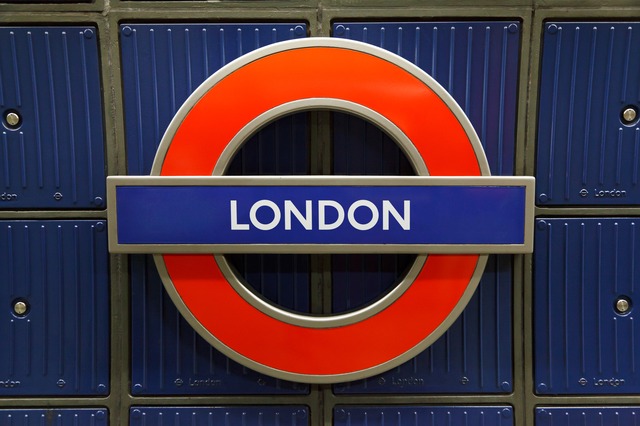
Biz Stone on the past of Twitter and future of tech
I am just back from short but really insightful event at Said Business School in Oxford – meeting with the co-founder of Twitter, Biz Stone (@biz) so I would like to share all my notes, before I head off to another event. Here we go…
“I love the idea of taking one thing and using it for another.”
When asked about the beginning of Twitter Biz mentioned that it was actually born out of failure – after two other attempts to create a good messaging system. So today he can only advise all aspiring entrepreneurs to “go and build something”. His personal, early experiences of Twitter messaging meant having fun with friends, but there were moments of interesting realisations – “finally I was laughing out loud at something that I was working on. I had an emotional engagement in it. That feeling would later take me through a lot of projects”.
Initially, like with many ideas and projects we see today, many criticised Twitter for the fun element but lack of particular purpose: “The biggest argument was that Twitter was not useful so Evan said: “Neither is ice-cream – shall we ban ice-cream?”.
Building something that actually worked and appealed to people, seeing it used on screens of SXSW Interactive attendees made Biz realise that this idea might just work and as it grew, it filled him with passion, joy but also amazement that a new technology is born – one that facilitates new online behaviours: “There was no such technology that would allow flocking behaviour to happen in humans”.
“We come up with really creative solutions when our back is to the wall.”
When asked about the notion of creativity (Biz was initially an artist, only later entrepreneur) and the fact that in his book he addresses the need to re-invent yourself and fight the need to stick to one’s ideas Biz used the word ‘fluid’, pointed out that creativity teaches you a unique way of looking at problems but putting constrains around creatives might motivate them to deliver better solutions. I really liked his point on like to be in a box or at least seeing its boundaries to be able to think outside of it. But also the personal story of his mother telling him to draw on a piece of paper, Biz not knowing what to draw but getting the inspiration from mum’s statement ‘don’t draw then!’. Kids, but not only kids, tend to work this way, don’t you think?
The notion of constrains led to the question I am sure Biz is asked a lot – why 140 characters? So we have learned that originally it was actually 160 – the international standard for SMS messaging with allowance for Twitter handles so some had more space, others less space to type. Initial twitter team settled with 140 characters allowing 15 for Twitter handle and 5 for the idea of ads! (just imagine that one for a second!:))
There were also few good questions from the audience so let me mention those too (note that answers are quotes but might omit few sentences, the meaning is conveyed though, I hope).
Q: How did your environment influence your choices and career?
A: “At the beginning there was nothing. But in the end it was not about capital or companies – it was about people, people were the capital, learning from people smarter than me. The key for Twitter was the fact that they did not just start up with an idea and build on it – first we built something that was working and only then went for the money. So I always advice start ups to build something first, it is much easier to raise money this way.” [As for himself he did have financial issues but used to say:] “I have faith in future Biz. And I loved that guy. He totally fixed it all”
Q: Does Twitter support censorship?
A: “I do not work at Twitter anymore but….absolutely not. I drew a bird and used it as a logo to use it as a symbol of freedom of expression. The bird is not in a cage. […] In Germany and France we cannot publish pro-nazi stuff so we hide those tweets in those countries but not in other parts of the world. We try to be as free speechy as we can”
Q: How do politicians use Twitter? Did it change their relationship with citizens?
A: “Politicians are supposed to be representing their constituents so if you can read about their issues and address those it’s a wonderful thing. I think Twitter changed the pace of democracy. It made it faster and it made it more of the people because they had a say.”
“We are wired to do a good thing. We will only do more good as the time goes by.”
And finally we have learned about the “pay forward idea” mentioned in his book – people helping people is the coolest thing in the world, the power of humanity is a big thing. And so Biz finished his talk with a great, positive and optimistic take on the future of tech and the compact impact of altruism: “I came to understand that people are doing philanthropy wrong. They think that it’s something they will do when they are older and comfortable. They will then donate some money to a cause. But it’s not the way to do it. The way to do it is to get involved as early as you can – the impact you will have over the life if you start now is huge and you will think great about yourself. This works in business context too! I think that the future of marketing is philanthropy. And it’s happening already. People are attracted to a higher level of meaning, they want to make smth meaningful. Your customers will feel a sense of worth and happiness and you will attract better talent. [people] We are wired to do a good thing. We will only do more good as the time goes by”.
I really enjoyed this lecture so kudos to Said Business School for running it, opening it to the public and big thank you to Graeme Hunter for the invite!




